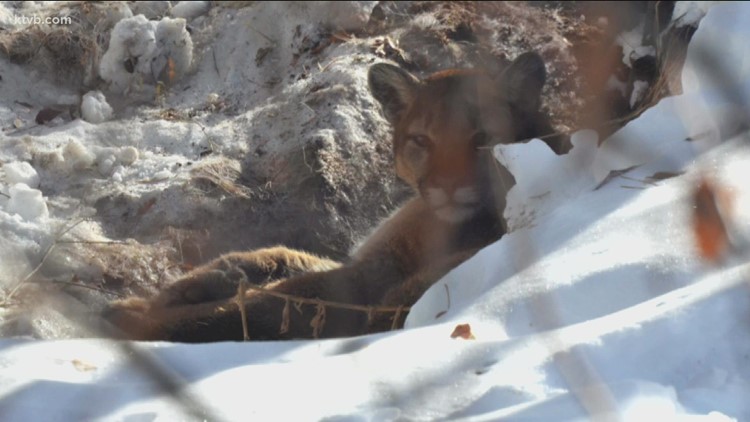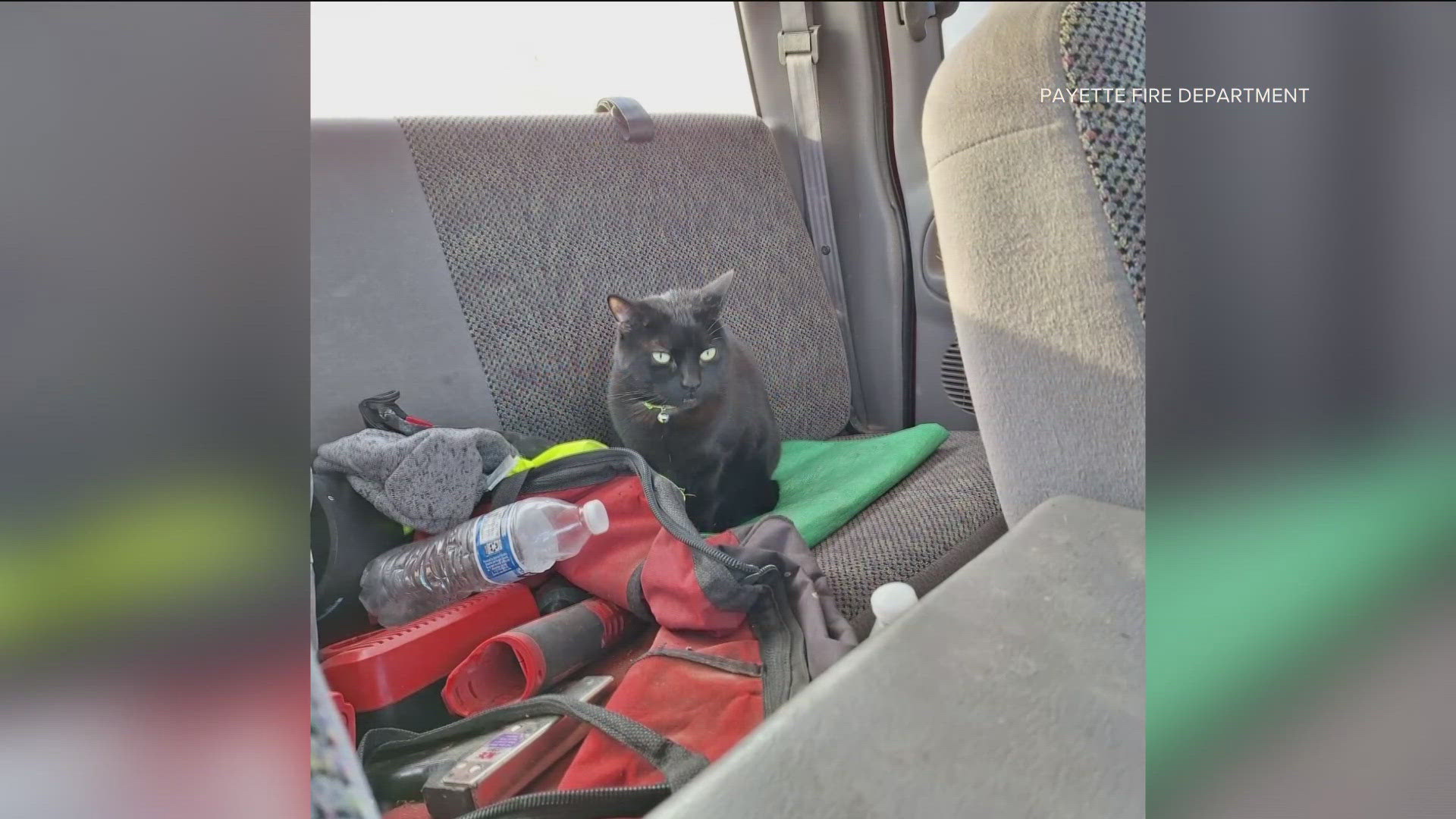BOISE, Idaho — After a rise in mountain lion sightings, the Idaho Department of Fish and Game (IDFG) is reminding the public to stay alert of their surroundings and practice personal safety.
IDFG staff in the Magic Valley Region have continued monitoring the area, and have reported an increase in calls related to mountain lion sightings. Officers said the animals are killing deer and catching other prey near Ketchum and Hailey neighborhoods.
Some residents living in the Wood River Valley have actually caught footage of the mountain lions on security cameras, and found tracks circling their homes. IDFG officers said recently, a dog from Hailey was injured in a mountain lion attack.
Fish and Game staff said residents should be extra vigilant in staying aware of their surroundings during the early morning and evening hours, when mountain lions are more active; however, sightings have been reported throughout the day.
"We hear reports that some in our communities advise against calling Fish and Game when a mountain lion or black bear is seen in a neighborhood or becomes involved in some type of conflict, because there is a perception that calling will always result in animals being euthanized. That statement is not true," Regional Supervisor Craig White said, "we will always encourage local residents to notify our office if they observe a lion or their tracks around their homes or come across cached prey, or in the case of black bears, find that a bear has gotten access to their garbage."
Mountain lions are indigenous to Idaho and can be seen throughout the year, across the state. Although sightings and incident reports tend to increase during the winter season, since the snow can make tracks more visible, and their prey moves into the winter ranges which can often be close to local communities.
"Our conservation officers and wildlife biologists are always willing to work with local residents to make sure that they and their pets stay safe. Our goal is not to remove predators like mountain lions and bears from the landscape, but instead to encourage them to continue to live in natural habitats, outside of our communities," White said. "Fish and Game has options to deter wildlife, such as hazing, only resorting to lethal removal if an animal has become aggressive when living among people and is determined to be a threat to public safety."
Even though there has been an increase in sightings, there have been no reports of people being attacked by mountain lions. In the last three years, however, there have been reports of pets and livestock being killed or injured by mountain lions, along with cats that have disappeared from their homes, likely due to lion predation. IDFG said those situations tend to be more rare.
In the last five years, IDFG staff has had to lethally remove four mountain lions in the Wood River Valley, out of hundreds of reported encounters.
If a person is in close proximity to a lion, meaning they see it, Wildlife managers agree they should:
- NEVER run away from a mountain lion. The lion's instinct is to chase and ultimately catch what they perceive as potential prey.
- NEVER turn your back on a lion. Always face them while making yourself look as large as you can. Yell loudly, but do not scream. A high-pitched scream may mimic the sound of a wounded animal.
- SLOWLY back away while maintaining eye contact with the lion.
- Safety equipment you may choose to carry could include bear spray, a noise device, like an air horn, and if you walk in the dark, a very bright flashlight.
- If you are attacked, fight back!
Tips to reduce human-wildlife conflicts:
Homeowners can reduce the risk of having a mountain lion encounter by checking around their homes for potential spots lions could fit in, like beneath decks, open doors to barns or backyard sheds. Those areas should be blocked in some way, so the animals are not able to gain access to the space.
If residents have other animals, they should keep porch lights on when letting pets outside and make noise to alert any wildlife that could be nearby. IDFG said many attacks can often be the result of surprise encounters, for both people and pets.
The Wood River Valley Wildlife Smart Communities Coalition, a group of Blaine County residents coming together to work towards a Valley-wide goal of reducing negative interactions between humans and wildlife, has created a website with information about how to safely live near wildlife.
Residents in the Magic Valley are asked to immediately report any incident or attack related to wildlife. Contact the Magic Valley Regional Office at (208) 324-4359, from 8 a.m. – 5 p.m. Monday – Friday, or to local law enforcement agencies.
Watch more Local News:
See the latest news from around the Treasure Valley and the Gem State in our YouTube playlist:



